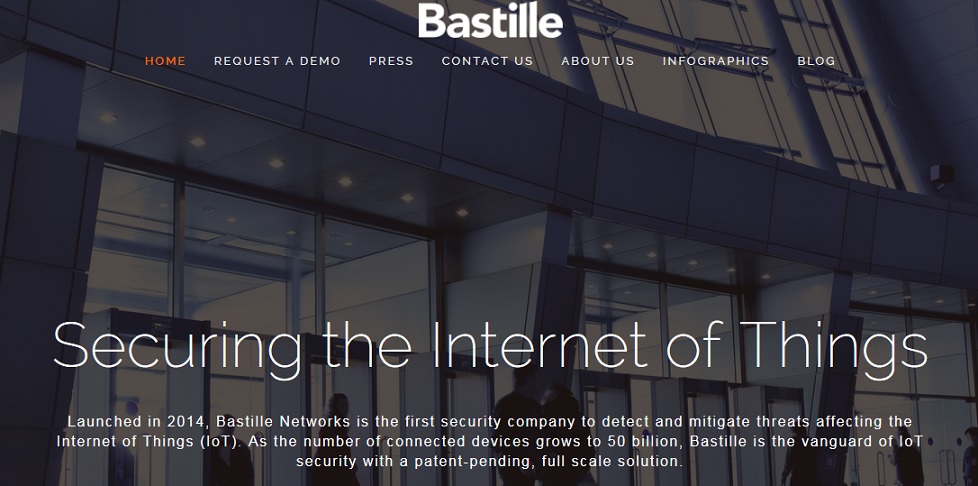 Just like week, we reported that Atlanta, US-based startup Bastille Networks had received fresh funding, bringing focus on this company, one of the few in the world working in the field of Internet of Things (IoT) security, using a patent-pending solution.
Just like week, we reported that Atlanta, US-based startup Bastille Networks had received fresh funding, bringing focus on this company, one of the few in the world working in the field of Internet of Things (IoT) security, using a patent-pending solution.
Founded in mid-2014 by veteran Internet security executive Chris Rouland, Bastille claims on its Website to be “the first and only company to completely secure the IoT on corporate campuses by identifying airborne threats and allowing for preemptive response.” This, it does, using a proprietary software and sensor technology which the startup uses to privately scans a corporation’s air space, giving security personnel visibility into every RF-emitting device on a premise. As a result, it claims, companies can accurately quantify risk and mitigate threats, claims Bastille.
Bastille featured in the MIT Technology Review. The article, while talking of the path-breaking tech deployed by Bastille, quoted an expert as saying one of the challenges this startup faced was that not all devices emitted RF signals. Matt Reynolds, an associate professor at the University of Washington, an expert in radio frequency technologies, was quoted as saying in this story that some machines could be set to wake up only when triggered by an attacker. Matt said the fact that a particular device was not advertising its presence did not mean it wasnot present or listening.
But Bastille seems pretty confident of the tech it deploys to sniff out security threats from the air. It says on its Website that at the most complex level, Bastille’s ambient detection enables security teams to prevent RF data leakage by identifying airborne threats and flows. The patented solution also provides a complete, holistic solution with visibility into the location and movement of each IoT device – helping protect physical and human assets.
It measures the typical RF signature emitted by devices in an office. These could include control systems, sensors, phones, wearables, and so on. If anything suspicious develops, Bastille alerts the corporate’s IT staff. Bastille has been testing its technology with some financial services companies since December and plans to make its technology available to other companies in late 2015.
Image Credit: Bastille Networks
– Advertising Message –
